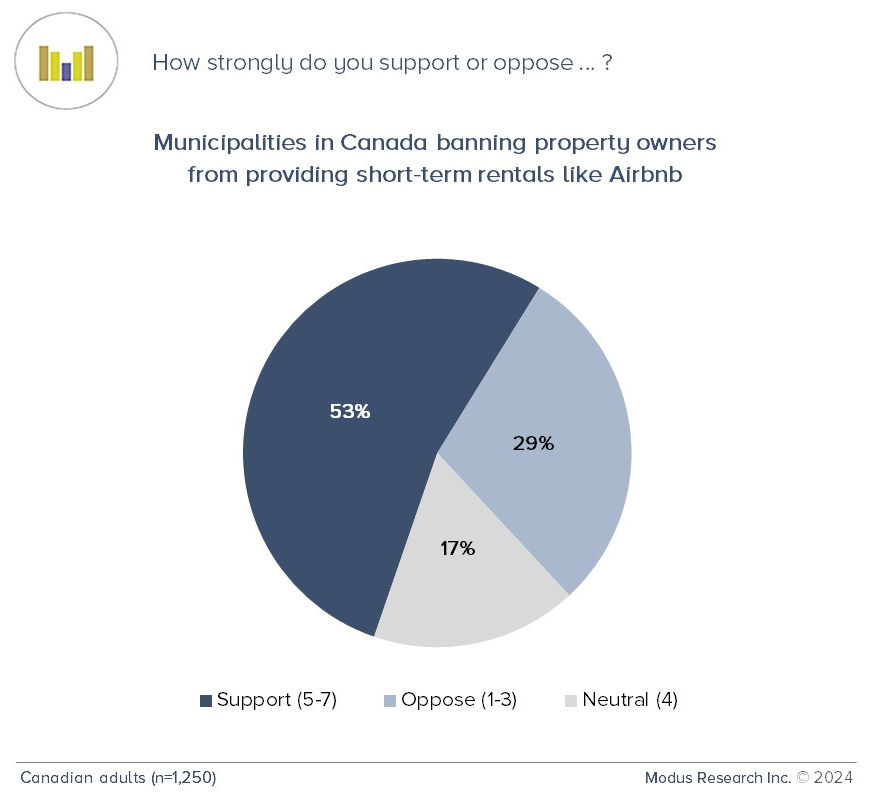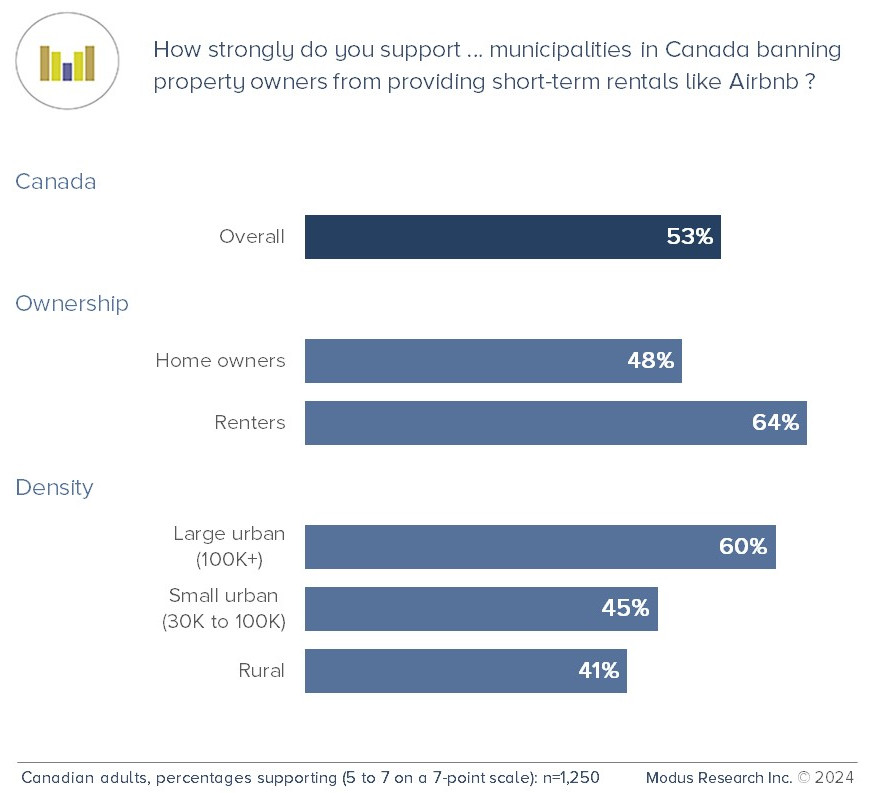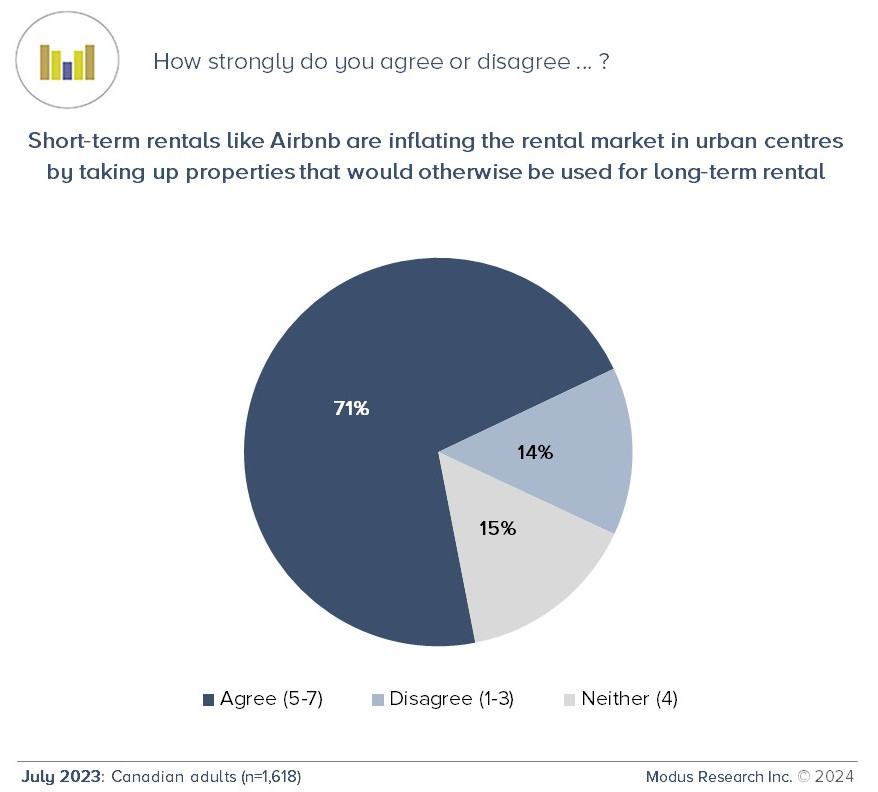The most recent survey from Modalis Public Opinion finds that a majority of Canadians support banning short-term rentals like Airbnb.
Key findings in this release:
- Over half of Canadians are in favour of banning short-term rentals
- This is especially true in Canada’s urban centres
- Canadians agree that short-term rentals are eating up the supply of long-term rentals

Over half support banning Airbnb.
When asked if they support or oppose municipalities in Canada banning property owners from providing short-term rentals like Airbnb, a majority support the measure.

Support for banning Airbnb is highest in large urban centres and among renters.
Almost two-thirds of renters support an Airbnb ban, while Canadians living in large urban areas also support it more strongly than others.

A sizable majority of Canadians agree that short-term rentals are inflating the price of rentals.
Support for banning short-term rentals is likely driven by concerns about the inflationary impact.
This past summer, we asked whether short-term rentals are inflating the rental market by eating up rental stock. A large majority of Canadian agree with fewer than 1 in 6 disagreeing.
Discussion
Housing affordability is a burning issue for Canadians. While home ownership is increasingly out of reach for young Canadians, the alternative is not overly appealing as the price of rentals has increased significantly in recent years.
Most Canadians recognize the inflationary impact of short-term rentals. Now, we find a majority in support of an outright ban.
Methodology
The survey was conducted from January 27 to February 13 using the Modalis Public Opinion panel – 100% recruited using random probability telephone sampling. Because the panel is built entirely using random probability sampling, it is valid to cite the margin of error for this survey. The survey is based on a representative sample of 1,250 Canadian adults and has a margin of error of +/- 2.8% points, 95 times out of 100. The survey data is weighted by age, gender, household income, and region according to the latest Statistics Canada census.




